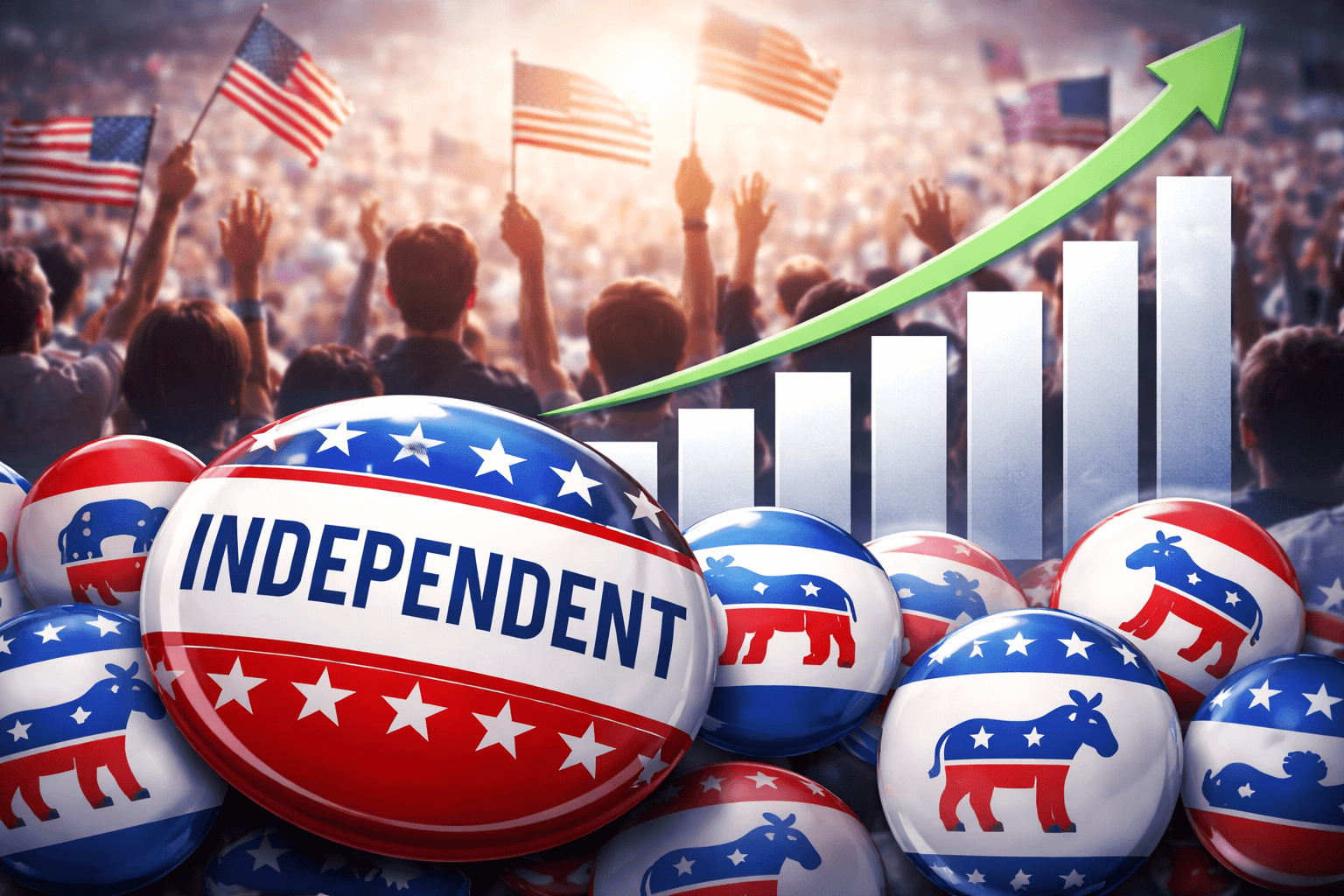Nonpartisan Voters Now Outnumber Democrats and Republicans in Nevada

Photo Credit: J. Stephen Conn / Flickr
The latest voter registration data in Nevada shows that nonpartisan voters have surpassed registered Democrats as the largest voting demographic in the state – a development that highlights the need for more representative elections for voters outside the major parties.
According to Nevada’s July voter registration report, there are 605,112 voters registered nonpartisan, compared to 601,882 Democrats and 551,090 Republicans. Overall, nonpartisan voters make up 32% of the state’s electorate.
It is also worth noting that Nevada has an American Independent Party with 83,017 registered voters. IVN was among the first to report that most California voters registered AIP did so by mistake (intending to register independent of a party), and it is possible this is the case in Nevada as well.
In a state where voters are nearly evenly split three ways between Republicans, Democrats, and independents, one would expect the election system to appropriately represent its electorate. Instead, it has elections that disenfranchise its largest voting bloc.
Nevada conducts closed partisan primary elections, meaning only registered Republicans and Democrats can participate in these taxpayer-funded and administered elections.
Same-day voter registration allows nonpartisan voters to switch party affiliation on primary election day. However, the right to vote is still conditioned on joining a private political organization even if a voter can switch on election day and then switch back later.
Nevada voters have already signaled that they are ready for change, because many of them agree – as The Nevada Independent quoted one nonpartisan voter – that “neither party is entitled” to their votes – which is how the current system treats them.
In 2022, state voters approved a ballot measure that if approved again in 2024 would adopt nonpartisan primaries in which all voters and candidates participate on a single primary ballot and the top five candidates, regardless of party affiliation, advance to the general election.
Then, voters would have the option to rank the candidates in the general election in order of preference under ranked choice voting. The voting system has become colloquially known as Final Five Voting – and it's a system that is gaining traction across the country.
Alaska became the first state to adopt a similar voting system in 2020 and used it for the first time in 2022. While Alaska uses a Final Four system, Nevada could become the first state to adopt Final Five Voting.
Nonpartisan voters have a consequential impact on Nevada elections. They can swing the state one way or another each presidential election cycle. They can propel a candidate to victory from one party in one race and a candidate in another party in another race.
The nation witnessed this in 2022 when Nevada independents elected Democratic US Sen. Catherine Cortez Masto and Republican Governor Joe Lombardo in the same election.
Imagine the impact Nevada’s largest voting bloc would have on the state’s political landscape if they were given fair and meaningful say at every stage of the election process – if state elections put the interests of voters above the interests of private political parties.
 Shawn Griffiths
Shawn Griffiths





